- Home
- Anthony Trollope
Castle Richmond
Castle Richmond Read online
CASTLE RICHMOND
by
ANTHONY TROLLOPE
With an Introduction by Algar Thorold
London & New York: MCMVI
INTRODUCTION
"Castle Richmond" was written in 1861, long after Trollope had leftIreland. The characterization is weak, and the plot, although theauthor himself thought well of it, mechanical.
The value of the story is rather documentary than literary. Itcontains several graphic scenes descriptive of the great Irishfamine. Trollope observed carefully, and on the whole impartially,though his powers of discrimination were not quite fine enough tomake him an ideal annalist.
Still, such as they were, he has used them here with noinconsiderable effect. His desire to be fair has led him to laystress in an inverse ratio to his prepossessions, and his Priest is abetter man than his parson.
The best, indeed the only piece of real characterization in the bookis the delineation of Abe Mollett. This unscrupulous blackmaileris put before us with real art, with something of the lovingpreoccupation of the hunter for his quarry. Trollope loved a rogue,and in his long portrait gallery there are several really charmingones. He did not, indeed, perceive the aesthetic value of sin--he didnot perceive the esthetic value of anything,--and his analysis ofhuman nature was not profound enough to reach the conception of sin,crime being to him the nadir of downward possibility--but he had aprofessional, a sort of half Scotland Yard, half master of houndsinterest in a criminal. "See," he would muse, "how cunningly thecreature works, now back to his earth, anon stealing an unsuspectedrun across country, the clever rascal;" and his ethical disapprovalever, as usual, with English critics of life, in the foreground,clearly enhanced a primitive predatory instinct not obscurelyakin, a cynic might say, to those dark impulses he holds up toour reprobation. This self-realization in his fiction is one ofTrollope's principal charms. Never was there a more subjectivewriter. Unlike Flaubert, who laid down the canon that the authorshould exist in his work as God in creation, to be, here or there,dimly divined but never recognized, though everywhere latent,Trollope was never weary of writing himself large in every man,woman, or child he described.
The illusion of objectivity which he so successfully achieves isdue to the fact that his mind was so perfectly contented with itshereditary and circumstantial conditions, was itself so perfectlythe mental equivalent of those conditions. Thus the perfection ofhis egotism, tight as a drum, saved him. Had it been a little lesscomplete, he would have faltered and bungled; as it was, he had thenaive certainty of a child, to whose innocent apprehension the worldand self are one, and who therefore cannot err.
ALGAR THOROLD.
CONTENTS
I. THE BARONY OF DESMOND. II. OWEN FITZGERALD. III. CLARA DESMOND. IV. THE COUNTESS. V. THE FITZGERALDS OF CASTLE RICHMOND. VI. THE KANTURK HOTEL, SOUTH MAIN STREET, CORK. VII. THE FAMINE YEAR. VIII. GORTNACLOUGH AND BERRYHILL. IX. FAMILY COUNCILS. X. THE RECTOR OF DRUMBARROW AND HIS WIFE. XI. SECOND LOVE. XII. DOUBTS. XIII. MR. MOLLETT RETURNS TO SOUTH MAIN STREET. XIV. THE REJECTED SUITOR. XV. DIPLOMACY. XVI. THE PATH BENEATH THE ELMS. XVII. FATHER BARNEY. XVIII. THE RELIEF COMMITTEE. XIX. THE FRIEND OF THE FAMILY. XX. TWO WITNESSES. XXI. FAIR ARGUMENTS. XXII. THE TELLING OF THE TALE. XXIII. BEFORE BREAKFAST AT HAP HOUSE. XXIV. AFTER BREAKFAST AT HAP HOUSE. XXV. A MUDDY WALK ON A WET MORNING. XXVI. COMFORTLESS. XXVII. COMFORTED. XXVIII. FOR A' THAT AND A' THAT. XXIX. ILL NEWS FLIES FAST. XXX. PALLIDA MORS. XXXI. THE FIRST MONTH. XXXII. PREPARATIONS FOR GOING. XXXIII. THE LAST STAGE. XXXIV. FAREWELL. XXXV. HERBERT FITZGERALD IN LONDON. XXXVI. HOW THE EARL WAS WON. XXXVII. A TALE OF A TURBOT. XXXVIII. CONDEMNED. XXXIX. FOX-HUNTING IN SPINNY LANE. XL. THE FOX IN HIS EARTH. XLI. THE LOBBY OF THE HOUSE OF COMMONS. XLII. ANOTHER JOURNEY. XLIII. PLAYING ROUNDERS. XLIV. CONCLUSION.

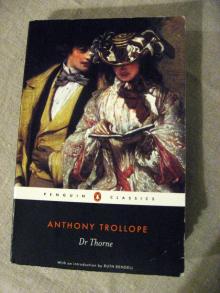 Doctor Thorne
Doctor Thorne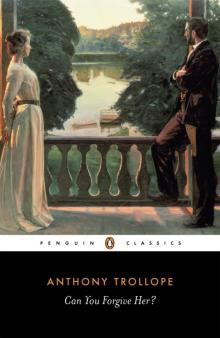 Can You Forgive Her?
Can You Forgive Her?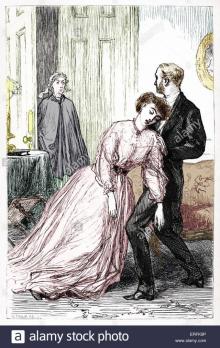 The Last Chronicle of Barset
The Last Chronicle of Barset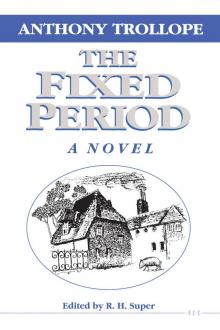 The Fixed Period
The Fixed Period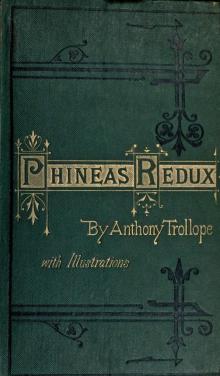 Phineas Redux
Phineas Redux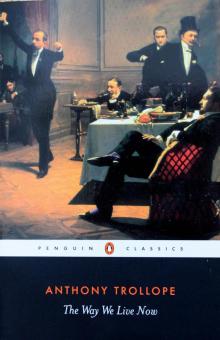 The Way We Live Now
The Way We Live Now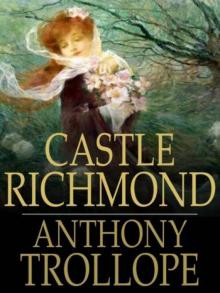 Castle Richmond
Castle Richmond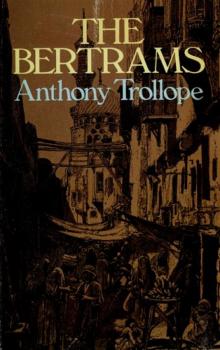 The Bertrams
The Bertrams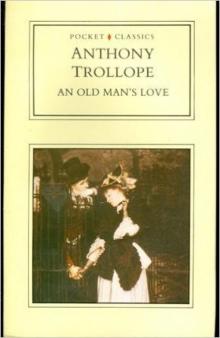 An Old Man's Love
An Old Man's Love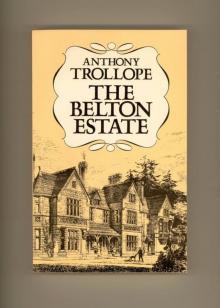 The Belton Estate
The Belton Estate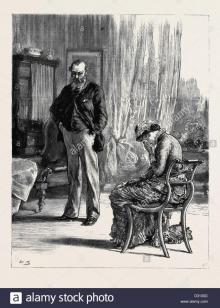 Marion Fay: A Novel
Marion Fay: A Novel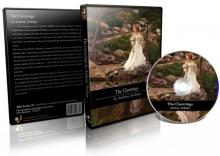 The Claverings
The Claverings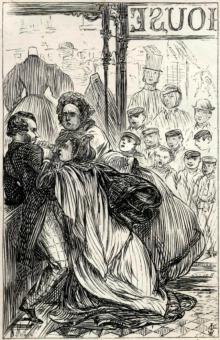 The Struggles of Brown, Jones, and Robinson
The Struggles of Brown, Jones, and Robinson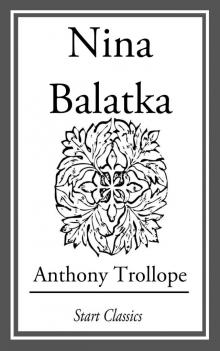 Nina Balatka
Nina Balatka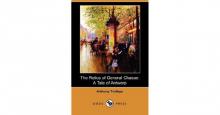 The Relics of General Chasse: A Tale of Antwerp
The Relics of General Chasse: A Tale of Antwerp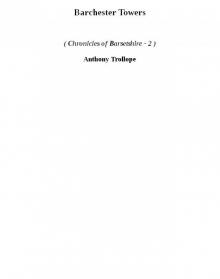 Barchester Towers cob-2
Barchester Towers cob-2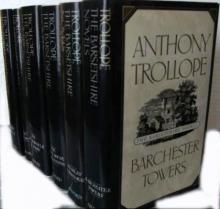 The Chronicles of Barsetshire
The Chronicles of Barsetshire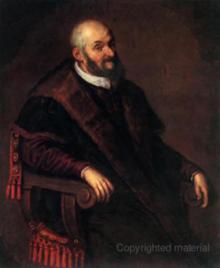 The Warden cob-1
The Warden cob-1 Framley Parsonage
Framley Parsonage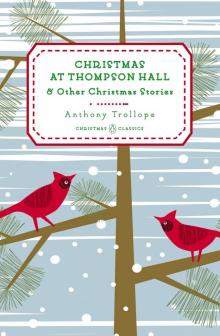 Christmas at Thompson Hall
Christmas at Thompson Hall The Warden
The Warden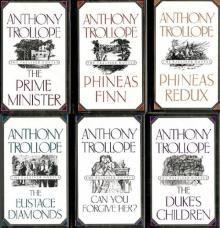 The Palliser Novels
The Palliser Novels The Small House at Allington
The Small House at Allington Barchester Towers
Barchester Towers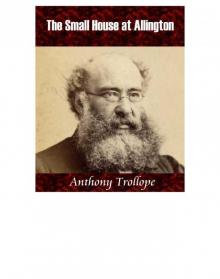 The Small House at Allington cob-5
The Small House at Allington cob-5 The Duke's Children
The Duke's Children Phineas Finn, the Irish Member
Phineas Finn, the Irish Member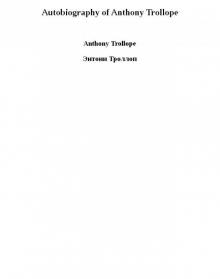 Autobiography of Anthony Trollope
Autobiography of Anthony Trollope